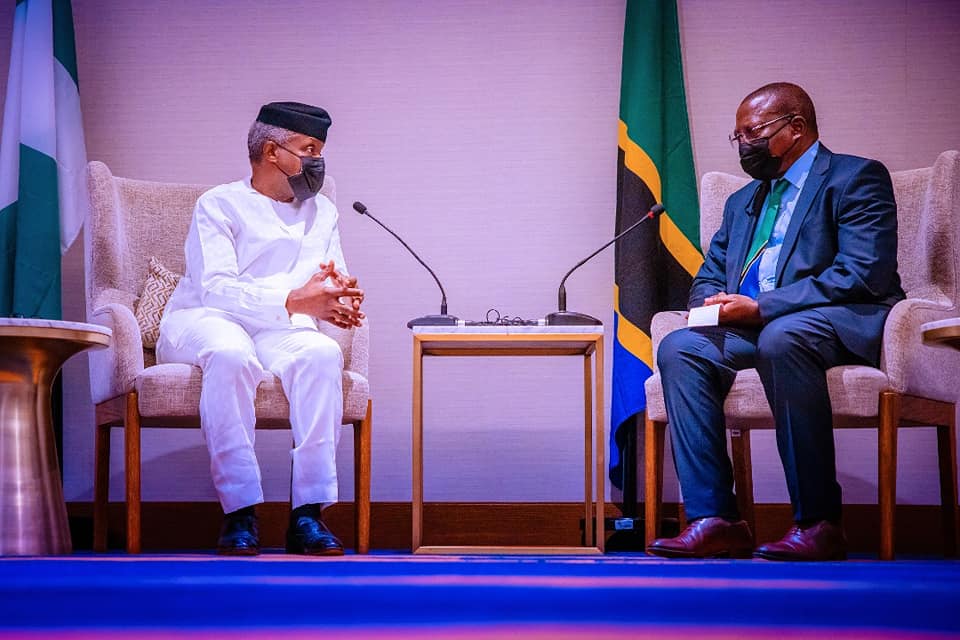Nigeria’s vice president, Yemi Osinbajo has asked for greater international collaboration to deter unconstitutional changes of government in Africa.
This request was made by Osinbajo on Sunday during a bilateral meeting with Tanzanian Vice-President Philip Mpango, in Arusha.
According to a statement issued by Laolu Akande, Osinbajo’s spokesperson, the two leaders discussed a wide range of issues of interest to both Nigeria and Tanzania, including infrastructure development, trade and investment, technology, climate change and democracy.
Speaking about the need to promote democratic governance on the continent against the backdrop of recent coups in West Africa, Osinbajo emphasised the need for other regional bodies on the continent and others in the global community to support actions already taken by ECOWAS leaders.
“We in ECOWAS have experienced in just under a year, 4 coups d’etats including attempts and it is disturbing because we felt we had put those things behind us, and now they seem to be coming back,” he was quoted as saying.
“It is something that we think has to do with more cooperation. AU has been very forthcoming (in condemnation) in saying that we cannot tolerate unconstitutional seizures of power. But sanctioning these coupists without any proper ‘teeth’ has not been particularly effective.
“There might be a need for us to reach out to some of the regional bodies, development financial institutions such as the World Bank, IMF, and the EU.
“The EU has been quite responsive but we think that we can do a lot more just in terms of cooperation, so there is an effective deterrent if everyone agrees that undemocratic change of government is unacceptable.”
On climate change and the attendant goal of net-zero emissions, the vice-president said “the major challenge is that the wealthier countries are abandoning fossil fuels and gas and some of them are already defunding gas projects”.
According to him, African countries will run into trouble because gas projects are important for the transition.
“It is important for us to come together to oppose any situation where the wealthier countries insist that on account of going towards net-zero emissions in 2050, we should then abandon gas which is one of the major sources of energy for industry and clean cooking,” Osinbajo said.
“We think that the wealthier countries are asking us to do what they didn’t do – use renewable energy for industry.”
Osinbajo said it is important to let the world know that Africa has two challenges – climate change and development.
“While we are interested in ensuring that we meet net-zero emissions target, we are also interested in ensuring that we develop,” he added.
On his part, Mpango commended West African leaders for their efforts to halt the menace of coups d’etat in the sub-region and also agreed that Africa can achieve more by working in unison.
Agreeing with Osinbajo, he said leaders on the continent need to work together to address climate change.
“The apparent wish by developed countries to abandon fossil fuel is worrisome because we are still struggling to provide the basics,” he was quoted as saying.
“Our forests are disappearing because our people are still forced to use firewood for cooking. If we abandon gas energy, where do we go to?”
